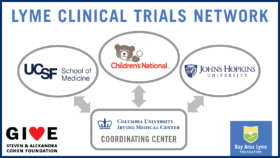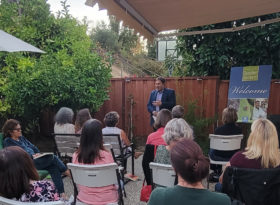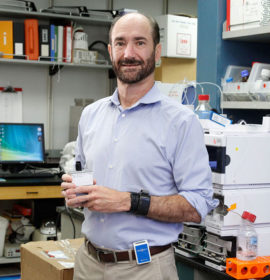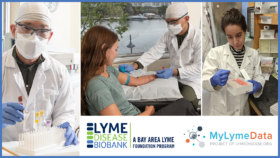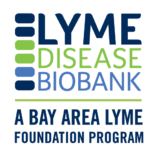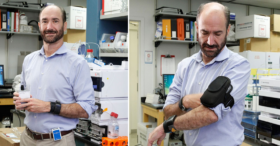Ticktective Podcast Transcript
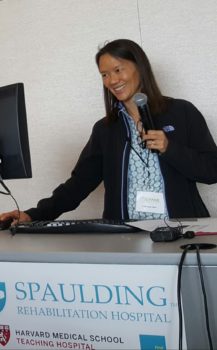 In this conversation between Ticktective™ host Dana Parish and Harvard-trained pediatric infectious diseases specialist Charlotte Mao, MD, the discussion focuses on how Dr. Mao gradually moved away from the narrow view of Lyme disease and began to champion understanding and therapeutics for children suffering from persistent Lyme. They explore tick-borne diseases and their connection to other chronic illnesses that are often misunderstood and misdiagnosed by conventional medicine. Note: This transcribed podcast has been edited for clarity.
In this conversation between Ticktective™ host Dana Parish and Harvard-trained pediatric infectious diseases specialist Charlotte Mao, MD, the discussion focuses on how Dr. Mao gradually moved away from the narrow view of Lyme disease and began to champion understanding and therapeutics for children suffering from persistent Lyme. They explore tick-borne diseases and their connection to other chronic illnesses that are often misunderstood and misdiagnosed by conventional medicine. Note: This transcribed podcast has been edited for clarity.
Dana Parish: Welcome to the Ticktective Podcast, a program of the Bay Area Lyme Foundation, where our mission is to make Lyme disease easy to diagnose, and simple to cure. I’m your guest host today, Dana Parish. I’m the co-author of the book Chronic, and I’m on the advisory board of Bay Area Lyme Foundation. This program offers insightful interviews with clinicians, scientists, patients, and other interesting people. We’re a non-profit foundation based in Silicon Valley, and thanks to a generous grant that covers a hundred percent of our overhead, all of your donations go directly to our research and our prevention programs. For more information about Lyme disease, please visit us at bayarealyme.org.
Dana Parish: Hi I’m so excited to guest host the Ticktective podcast today. I want to introduce you to a very dear friend of mine, one of the most brilliant, curious, interesting, funny, and dearest people. Please welcome Dr. Charlotte Mao. She is a pediatric infectious diseases physician with a special focus on Lyme disease and associated infections. She received her medical degree at Harvard Medical School and did her pediatric and infectious diseases training at Boston Children’s Hospital. The first 25 years of her career were focused primarily on pediatric HIV clinical care and clinical research, serving as a site co-investigator for numerous NIH funded multi-center pediatric HIV clinical trials at Boston Children’s Hospital. She turned her focus to Lyme and associated diseases after gaining extensive clinical experience with pediatric Lyme patients in Boston children’s hospital’s referring ID clinic. Then she joined the Pediatric Infectious Disease Department at Mass General Hospital and Spaulding Rehab Hospital Dean Center for Tick-borne Illness, where she was the pediatric IG specialist in a multidisciplinary clinic for children with complex Lyme disease. She is currently curriculum director for Invisible International. She most recently served on a tick-borne disease working group subcommittee for prevention and treatment and co-organized a Cold Spring Harbor Laboratory Banbury Conference on perinatal transmission of Lyme Disease. She’s also on the Bay Area Lyme Foundation’s Science Committee. Welcome, Charlotte. It’s so great to see you!

